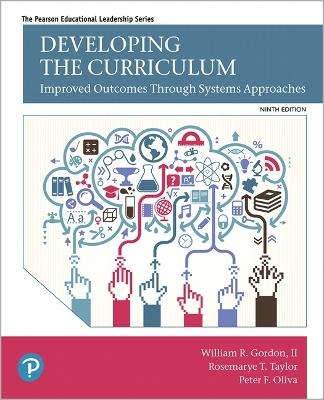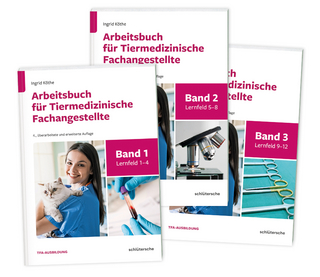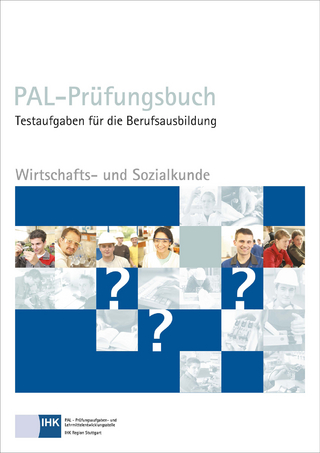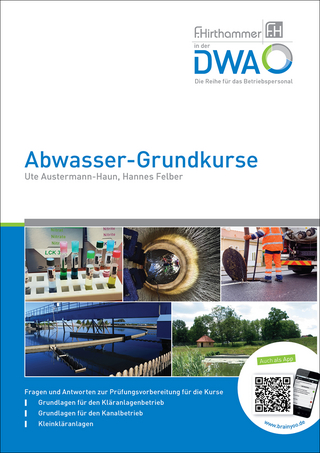
Developing the Curriculum
Pearson (Verlag)
978-0-13-480038-7 (ISBN)
A practical, step-by-step guide of the entire curriculum development process
Developing the Curriculum guides readers through all of the aspects of developing a curriculum–from the underlying principles and concepts to the roles of school personnel, the components of the process, uses of technology, and current issues that are shaping the field. The textbook includes both traditional and contemporary approaches to give readers a comprehensive, balanced look at the theories and evidence-based practices demonstrated to be effective curriculum specialists and instructional leaders.
Now featuring a new lead author and co-author, the 9th Edition keeps readers up to date on the continually evolving field of curriculum development. A revised chapter on emerging digital trends helps future educational administrators understand how to incorporate online learning innovations into the curriculum. Updated content, research, and practices throughout reflect the current environment of rigorous standards implementation and accountability for student learning outcomes. These new features have lead to this text's nomination for the Writing and Research Award from the American Association of College for Teacher Educations (AACTE).
About our authors William R. Gordon II has served as a teacher, instructional leader, and district-level executive leader in Florida. As both and elementary and high school principal, he became known for his deep understanding of curriculum and instruction, thought leadership, and systems approaches in the Orange County Public Schools (OCPS) school system. During his 11-year tenure as the principal of Winter Park High School, the school was named by the State of Florida as a “High-Performing School” due to the school's rigorous curriculum and outstanding student achievement. Additionally, U.S. News and World Report repeatedly ranked Winter Park High School in the top 1 percent of high schools in the nation. While in OCPS he became an area superintendent, where he was responsible for the curriculum, instruction and student and teacher performance in 29 diverse schools serving approximately 35,000 students. After serving in OCPS, he became the chief operations officer at Florida Virtual School (FLVS), the nation's oldest and largest public online public school system. While at serving as an executive leader at FLVS he established an Analysis, Assessment and Accountability (AAA) division in the district. The AAA division established enterprise-wide data collection, data analysis, and predictive analytics as a leader in the online industry. Additionally, he engaged with online curriculum, instruction, and professional learning. He has also served as an adjunct professor in the College of Education at the University of Central Florida. Rosemarye T. Taylor has a rich background in teaching and leading in Georgia and Florida. She also served as national director of professional development for Scholastic, Inc. Since joining the faculty at the University of Central Florida in Orlando, she has become known for expertise in instructional and curricular leadership through use-inspired research that influences improved educator practice. She has published numerous articles, chapters, and books addressing the alignment of curriculum, instruction, classroom and standardized assessment, professional learning and evaluation to result in improved learning outcomes. She has also led innovations at the school, school district and university level to leverage technology and digital tools to improve literacy and learning across student populations. Currently, she is Professor Educational Leadership working with master's degree and doctoral students, while continuing to actively support schools and school districts in their missions to serve all students.
PART I: THE CURRICULUM: Theoretical Dimensions
Curriculum and Instruction Defined
Principles of Curriculum Development
PART II: CURRICULUM DEVELOPMENT: Role of Personnel
Curriculum Development: A Multilevel, Multisector Process
Curriculum Development: The Human Dimension
PART III: CURRICULUM DEVELOPMENT: Components of Curriculum System Development Process
Models for Curriculum System Development
Philosophy and Aims of Education
Data and Evidence Informed Decision Making
Curriculum Goals and Objectives
PART IV: CURRICULUM IMPLEMENTATION
Instructional Goals or Essential Questions and Instructional Goals or Learning Targets
Evidence-Based Instruction
PART V: EVALUATION OF EFFECTIVENESS
Evaluation of Instruction
Evaluation of the Curriculum
PART VI: LOOKING FORWARD IN CURRICULUM DEVELOPMENT
Trends in Digital Curriculum and Instruction
| Erscheinungsdatum | 02.02.2018 |
|---|---|
| Sprache | englisch |
| Maße | 190 x 234 mm |
| Gewicht | 920 g |
| Themenwelt | Sozialwissenschaften ► Pädagogik ► Berufspädagogik |
| ISBN-10 | 0-13-480038-9 / 0134800389 |
| ISBN-13 | 978-0-13-480038-7 / 9780134800387 |
| Zustand | Neuware |
| Informationen gemäß Produktsicherheitsverordnung (GPSR) | |
| Haben Sie eine Frage zum Produkt? |
aus dem Bereich


